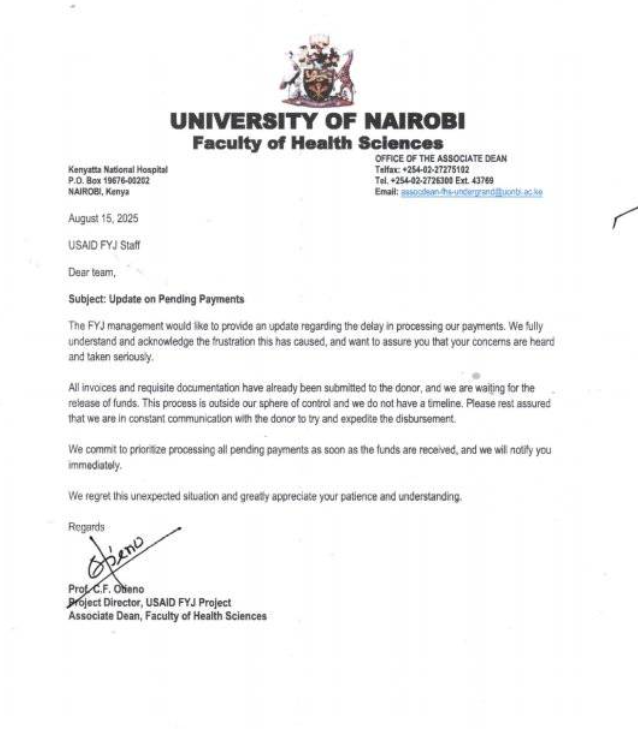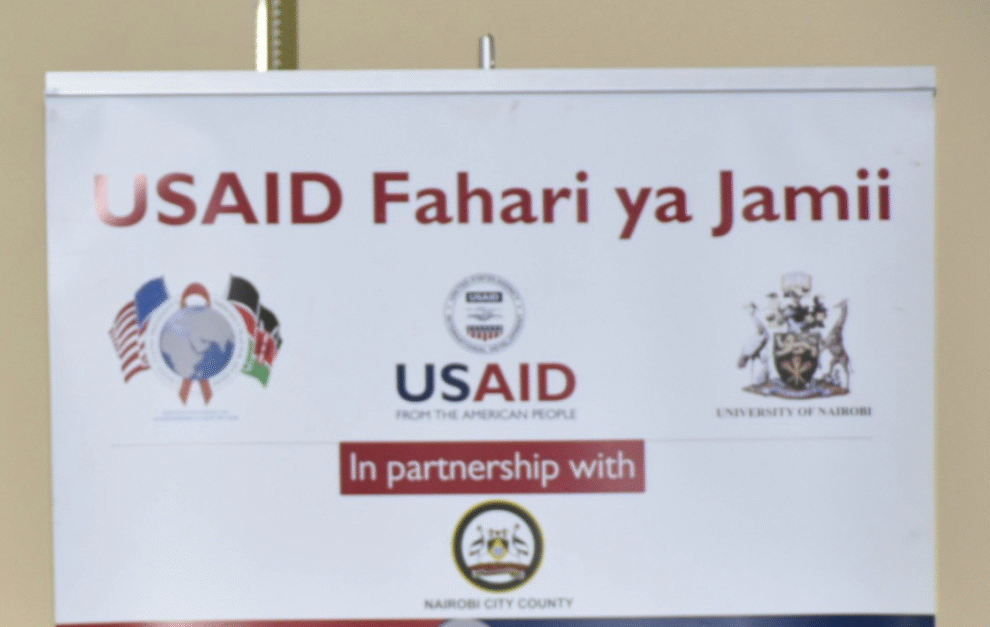Staff working under the USAID-funded Fahari Ya Jamii Project have been struggling with delayed payments for several months, creating a serious financial and operational crisis.
Complaints first emerged in May 2025, but as of August 2025, the issue remains unresolved. The University of Nairobi, which oversees the project, confirmed that all necessary invoices and supporting documentation had been submitted to the donor, but the funds have not yet been released.
University management explained that the timing of disbursement is outside their control and pledged to prioritize payments once the funds arrive.
Despite this, the explanation has provided little relief to staff who continue to face financial strain.Many employees have not received full salaries for months, and the problem is compounded by wider employment challenges.
Staff hired through the sub-awardee HR firm BlumeAfrica have faced abrupt terminations without clear timelines for severance or exit procedures.

In contrast, University-employed staff have continued to receive full dues and short-term contract extensions. The discrepancy in benefits has been significant, with BlumeAfrica staff reporting loss of basic medical cover and minimal pension contributions, while directly employed staff enjoy comprehensive coverage.
The prolonged uncertainty has forced several employees to seek legal guidance and involve labour offices.
Staff report that the combination of delayed pay, extended working hours, and unclear contractual obligations has caused serious mental fatigue and financial hardship. Some employees have struggled to pay rent, with extreme cases forcing staff to sleep at their workplaces.
The lack of clear communication on exit procedures and unpaid dues has intensified feelings of neglect and inequity among affected employees.
This situation reflects broader challenges in donor-funded projects that depend on subcontracted staff. Differences in treatment between directly employed and subcontracted employees have led to unequal access to benefits, delayed payments, and unclear reporting structures.
Staff continue to push for clarity on payment schedules and demand equal treatment for all employment levels under the project.
The August 2025 update from Fahari Ya Jamii management acknowledged the ongoing delays but offered no specific timeline or concrete assurances, leaving the uncertainty unresolved.
The ongoing delays and inconsistent communication have eroded staff confidence and morale, raising questions about project management, operational planning, and the handling of subcontracted labour in donor-supported initiatives.
Meanwhile, staff continue to provide essential HIV-related services across Nairobi and Kajiado counties despite their financial vulnerability. The unresolved payment issues highlight the need for stronger oversight and accountability to ensure that all employees under donor-funded projects are treated fairly and receive timely compensation.
Without immediate action, the situation risks further undermining staff wellbeing and the effectiveness of critical health services delivered by the project.





















Add Comment